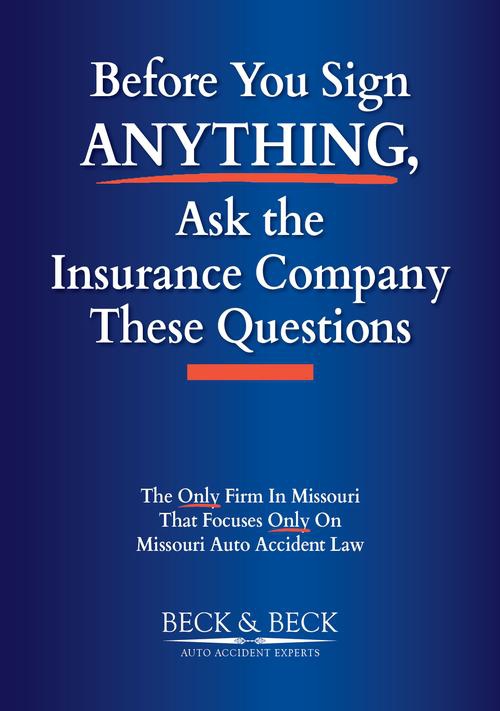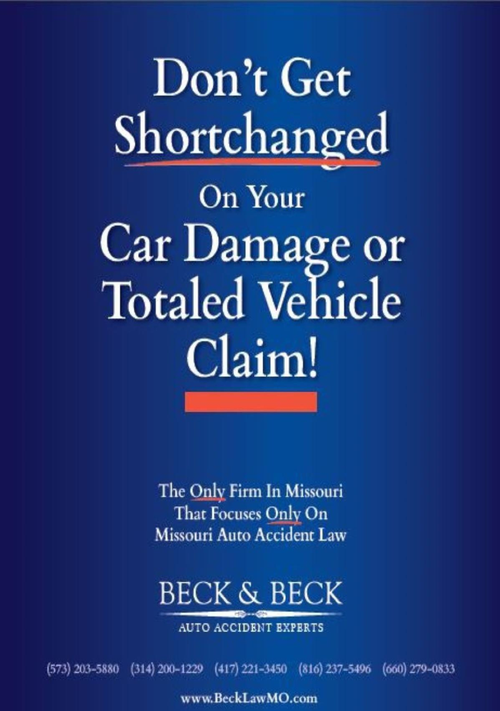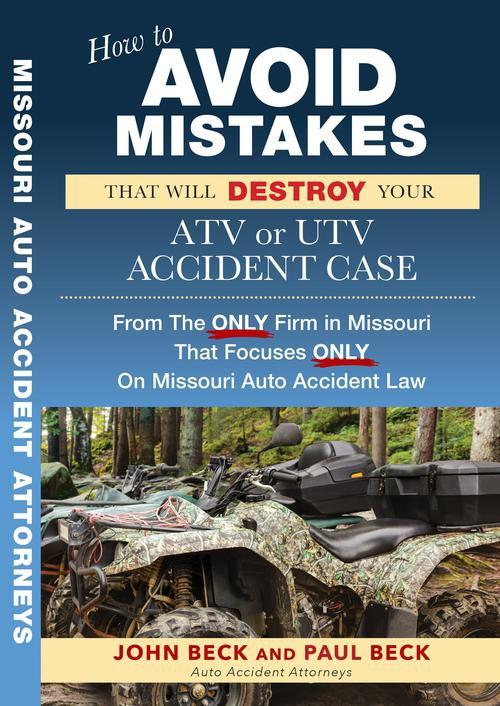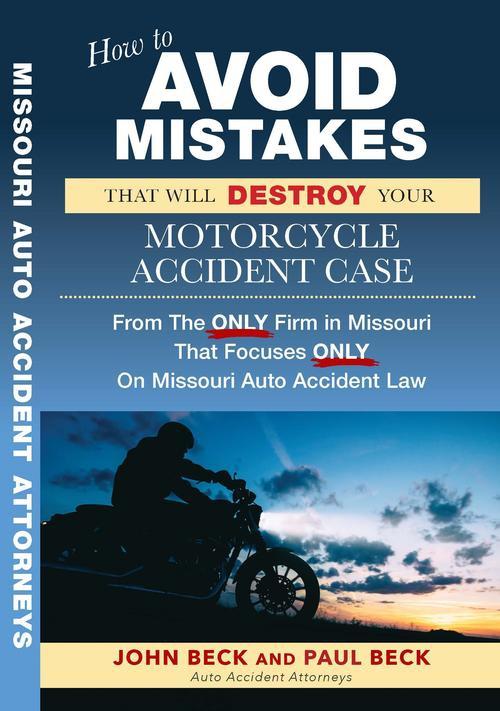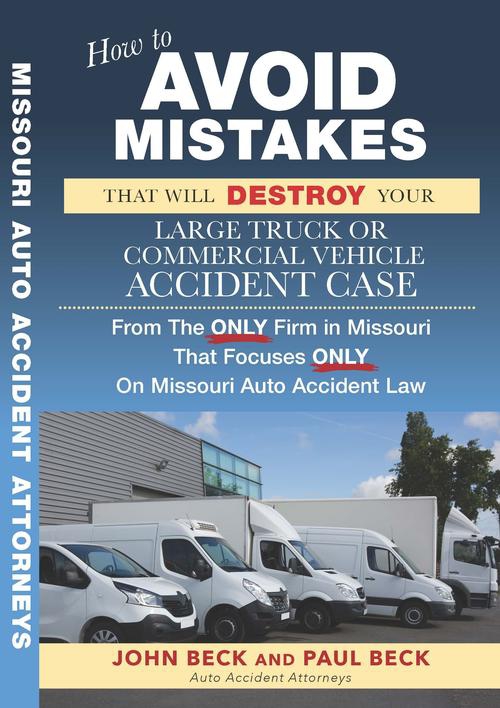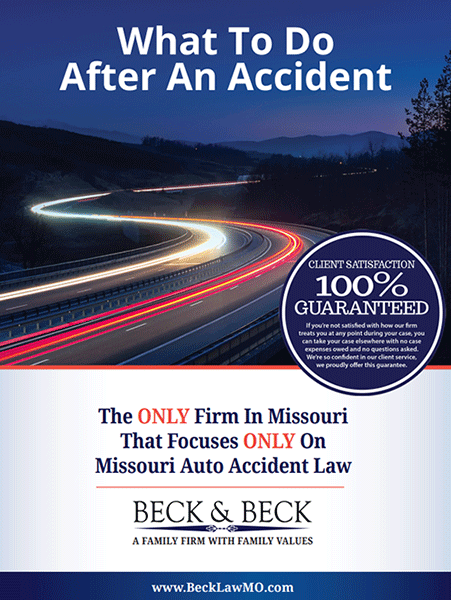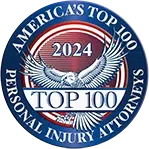After a car accident in Missouri, prioritizing your health by seeking medical attention after a car accident is essential, even if you feel uninjured. Many injuries, such as whiplash or internal trauma, may not show symptoms immediately but can worsen over time without prompt care. Ignoring medical treatment not only risks your well-being but also complicates any legal claims you may need to file.
Insurance companies rely heavily on medical records to evaluate the severity of injuries and determine compensation. Without timely medical documentation, proving your case becomes significantly more challenging. By consulting a doctor right away and following their recommended treatment, you protect both your health and your legal rights.
Understanding why immediate medical care matters can help you navigate the aftermath of a car accident. In this article by the experienced Missouri car accident lawyers at our firm, we explore the critical reasons to seek treatment and how it impacts your physical recovery and legal claim.
Why Medical Treatment After a Missouri Car Accident is Crucial
The aftermath of a car accident is often disorienting, with adrenaline masking pain or injuries. Many common injuries may not be immediately obvious, leaving accident victims unaware of their condition until days or weeks later. Ignoring these potential issues can lead to complications, making it vital to seek medical attention after a car accident promptly.
Injuries That Might Not Show Right Away
After a car accident, not all injuries are immediately visible or noticeable, even if the crash seemed minor. The body’s natural adrenaline response can mask pain and symptoms, delaying the realization that something is wrong. It’s crucial to monitor your health closely in the hours and days following the incident, as some injuries only become apparent over time.
Common Hidden Injuries
Certain injuries may take hours, days, or even weeks to manifest fully, including:
- Whiplash: Often dismissed as general soreness, whiplash causes neck stiffness and pain that typically develops a day or two after the accident.
- Concussions: Mild traumatic brain injuries can start with subtle symptoms like headaches, dizziness, or confusion, which may gradually worsen without immediate care.
- Soft tissue damage: Injuries to muscles, ligaments, or tendons might initially feel like minor discomfort, but bruising and swelling can take hours to appear.
- Herniated discs: Back or neck pain developing days after the accident could indicate a serious spinal injury that requires medical evaluation.
- Hairline fractures: Small cracks in bones might go unnoticed initially, especially if the pain is mild, but they can lead to significant complications if untreated.
Sometimes, what seems like a minor symptom could indicate a serious problem. For example:
- A persistent headache might indicate a traumatic brain injury or even internal bleeding.
- Shoulder pain could be a sign of a dislocated or separated joint, which might require surgical intervention.
- A bruise on your knee from hitting the dashboard could suggest cartilage damage or even long-term joint issues.
These injuries can worsen without prompt treatment, potentially leading to chronic pain or long-term health problems.
Factors That Influence When Symptoms Appear
The timing and severity of symptoms can depend on various factors, such as:
- The speed and direction of the collision.
- Whether you were wearing a seatbelt.
- Which part of the car was hit.
- Deployment of airbags.
- How your body braced for impact.
These factors illustrate why it’s crucial to see a doctor as soon as possible, even if you feel fine initially.
Why Early Detection Matters
Hidden injuries can worsen without prompt treatment, potentially leading to chronic pain, reduced mobility, or other long-term health problems. Seeking medical attention after a car accident is essential to catch these injuries early, even if you feel fine initially. A thorough medical evaluation can help prevent complications, ensuring that injuries are properly diagnosed and treated before they escalate.
Supporting Your Physical and Mental Recovery
After a car accident, seeking medical attention after a car accident is critical for addressing not only your physical injuries but also your mental and emotional health. While the immediate focus may be on visible injuries or physical pain, the emotional toll of an accident can be just as significant and deserves equal attention.
Caring for Your Physical Health
Immediate medical care ensures that injuries like broken bones, internal bleeding, or soft tissue damage are promptly identified and treated. It also helps uncover hidden issues such as concussions, whiplash, or herniated discs, which may not show symptoms until days or weeks after the accident. Early intervention can:
- Prevent injuries from worsening.
- Reduce the risk of chronic pain or long-term complications.
- Speed up your overall recovery process.
Addressing Mental Health After an Accident
The trauma of a car accident can have lasting psychological effects, even if the crash seemed minor. Many individuals experience mental health conditions such as:
- Anxiety: This might manifest as fear of driving, difficulty sleeping, or excessive worrying about safety.
- Depression: Feelings of sadness, hopelessness, or a loss of interest in activities you once enjoyed may follow an accident.
- Post-traumatic stress disorder (PTSD): Flashbacks, nightmares, or an intense fear of getting back into a car are common symptoms.
Ignoring these mental health challenges can lead to prolonged suffering and impact your quality of life. Seeking timely treatment, such as therapy or counseling, can help manage symptoms and improve overall well-being.
Protecting Your Long-Term Well-Being
For Missouri residents, taking swift action to seek a medical evaluation after an accident is vital to safeguarding both your short-term health and long-term quality of life. Comprehensive care ensures that your physical injuries are properly managed, while addressing mental health challenges can prevent lasting emotional scars. Whether through medication, physical therapy, or psychological support, prioritizing recovery from all angles helps you regain control and move forward with confidence.
The Importance of Medical Records as Evidence in Your Accident Claim
When filing a claim after a car accident, medical attention after a car accident not only ensures your recovery but also plays a crucial role in supporting your case. Medical records serve as foundational evidence, connecting your injuries to the accident and demonstrating their severity.
Establishing a Direct Link Between Your Injuries and the Accident
Medical records are critical in proving that your injuries were caused by the accident and not a pre-existing condition. Without proper documentation from a healthcare professional, insurance companies may argue that your injuries are unrelated to the crash. A doctor’s diagnosis, treatment plan, and ongoing notes create an undeniable timeline that establishes a direct link between the accident and your injuries.
Initial emergency room reports, for example, are especially persuasive. They detail your condition immediately after the accident, providing clear evidence of how the collision impacted your health. These records act as the foundation for your claim and help ensure that the narrative of your injuries is consistent and credible.
Demonstrating the Severity of Your Injuries
Accurate and detailed medical records showcase the extent of your injuries and their impact on your life. These records include:
- The type of injuries sustained.
- The treatments and therapies required.
- Prognoses for long-term recovery or ongoing health challenges.
This information is essential when calculating damages, such as:
- Medical bills and rehabilitation costs.
- Lost income due to missed work.
- Compensation for pain and suffering.
By documenting your injuries thoroughly, medical records strengthen your case and ensure that you receive the compensation you deserve.
Avoiding Legal Challenges by Seeking Prompt Medical Care
Delaying medical attention after a car accident can create gaps in your treatment history, which insurance companies might use to downplay the severity of your injuries or argue that they weren’t caused by the accident. Prompt medical care eliminates this risk, providing a clear, uninterrupted record of your condition and ensuring that all injuries are properly addressed and documented.
Ultimately, medical records are invaluable in building a strong claim. By seeking immediate care and following your doctor’s recommendations, you protect both your health and your legal rights.
How Not Following The Doctor’s Orders May Impact Your Claim
While seeking medical attention after a car accident is the first essential step, following your doctor’s treatment plan is equally critical. Compliance not only supports your recovery but also plays a pivotal role in the success of your personal injury claim.
Prioritizing Your Health
Your physician’s recommendations are tailored to promote your recovery and prevent complications. Whether it involves attending follow-up appointments, undergoing physical therapy, or taking prescribed medications, adhering to these instructions ensures you’re giving your body the best chance to heal. Ignoring or skipping parts of your treatment plan can lead to prolonged symptoms or even permanent injuries.
Strengthening Your Personal Injury Claim
Failing to follow medical advice can significantly weaken your personal injury claim. Insurance companies often scrutinize a claimant’s actions post-accident. If you neglect your treatment plan, they may argue that your injuries aren’t as serious as claimed or suggest that your condition worsened due to your own inaction.
By diligently complying with your doctor’s orders, you create a comprehensive medical history that strengthens your case. Detailed records of appointments, therapies, and progress serve as compelling evidence, showcasing your commitment to recovery and the seriousness of your injuries.
Increasing the Value of Your Claim
While incomplete recovery can increase the potential value of a claim, this is only valid if you’ve followed your prescribed treatment plan. Compliance demonstrates that your ongoing challenges are due to the severity of the accident, not neglect on your part. Conversely, failure to adhere to medical advice may result in reduced compensation, as insurers could argue that you bear responsibility for any worsening of your condition.
Ultimately, ensuring that you follow your doctor’s recommendations after seeking medical attention after a car accident is a crucial step in safeguarding your health and maximizing your chances of obtaining the compensation you deserve.
The Risk of PTSD After a Car Accident in Missouri
The aftermath of a car accident often leaves victims dealing with more than just physical injuries. Post-traumatic stress disorder (PTSD) is a life-altering condition that may emerge long after physical wounds have healed, profoundly affecting a victim’s daily life and mental well-being.
The Lasting Impact of PTSD
PTSD can manifest in various ways, such as:
- Intrusive memories or flashbacks of the accident
- Nightmares and difficulty sleeping
- Avoidance of driving or accident-related situations
- Difficulty concentrating or heightened anxiety
These symptoms may appear sporadically or persist for years, making even routine activities like commuting or working feel overwhelming. Left untreated, PTSD can hinder both personal and professional aspects of a victim’s life, sometimes rendering them unable to maintain employment or engage in previously enjoyed activities.
Challenges in Proving PTSD
Unlike physical injuries, PTSD and other psychological effects are often invisible and challenging to document. Victims may struggle to connect their symptoms directly to the accident without a proper medical assessment. Seeking medical attention after a car accident is vital—not only for physical injuries but also for an evaluation of trauma-related conditions like PTSD.
The Role of Medical Documentation
Promptly consulting a mental health professional at the first signs of PTSD is essential for both recovery and building a strong personal injury claim. A diagnosis from a qualified professional provides critical documentation, linking the psychological effects to the accident. This evidence can serve as the foundation for pursuing compensation for emotional and mental health damages.
Addressing PTSD early with treatments like cognitive-behavioral therapy (CBT) or other trauma-focused therapies can help victims regain control of their lives. Just as physical recovery starts with seeking care, recognizing and treating mental health challenges following an accident is key to achieving comprehensive healing.
Contact Beck & Beck Missouri Car Accident Lawyers Today
At Beck & Beck Missouri Car Accident Lawyers, we are dedicated to delivering compassionate, personalized, and results-driven legal representation to car accident victims throughout Missouri. With decades of experience handling personal injury cases, our team understands the challenges you face after an accident—whether it’s recovering from injuries, dealing with insurance companies, or navigating complex legal processes.
We take pride in fighting for the justice and compensation you deserve, ensuring that your rights are protected and your voice is heard. From investigating your accident to building a strong case, we are with you every step of the way. Our goal is to help you focus on your recovery while we handle the legal complexities of your claim.
If you’ve been injured in a car accident, let Beck & Beck Missouri Car Accident Lawyers provide the guidance and support you need. Contact us today to schedule your free consultation or call our office directly at 314.470.4928 to schedule a free consultation. We help car accident victims throughout the state of Missouri including St. Louis, Florissant, Columbia, Springfield, Kansas City, Kirksville and Cape Girardeau.

